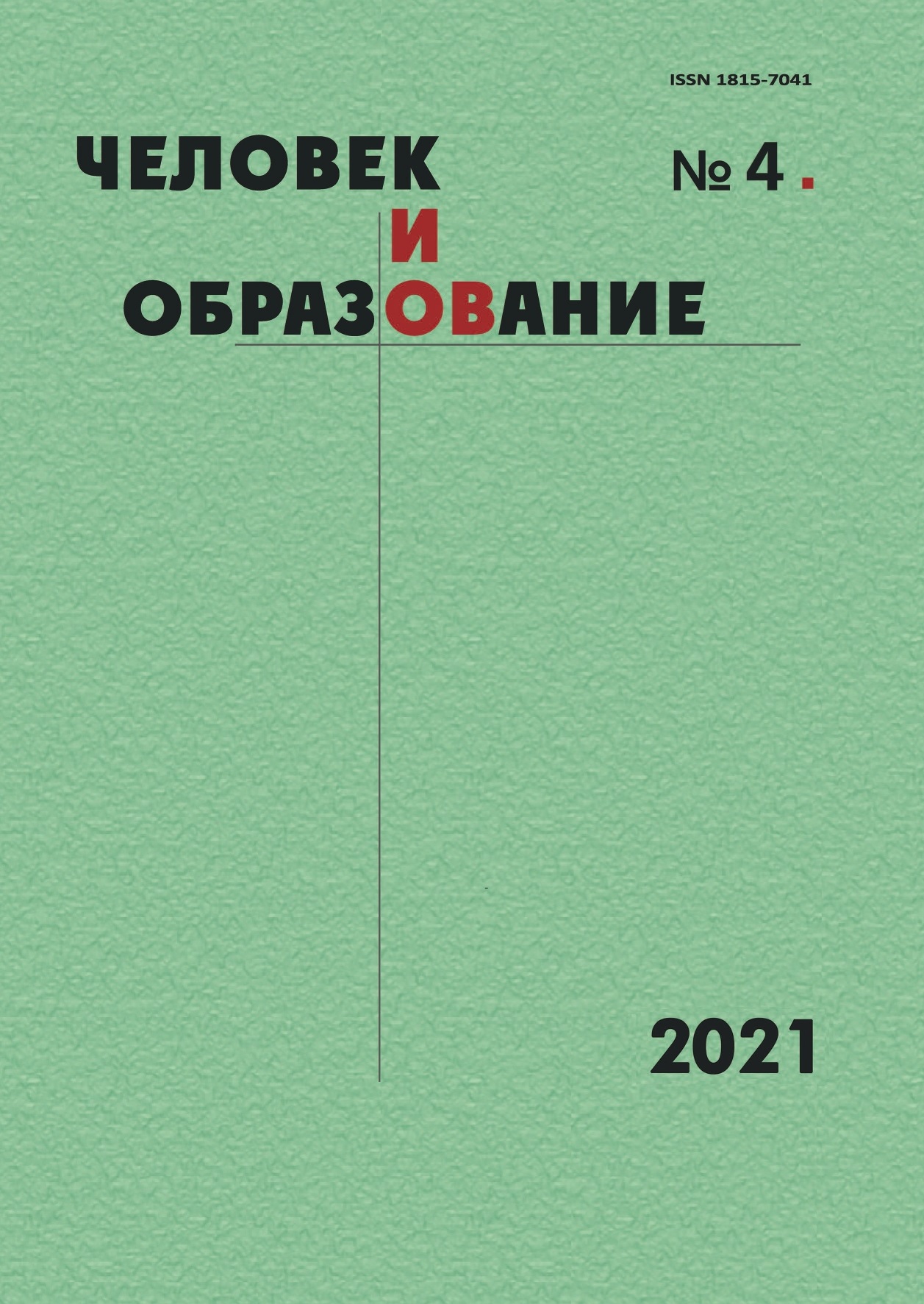|
MODERN PROBLEMS OF GENERAL AND PROFESSIONAL EDUCATION
|
| Motivating monitoring as an element of the education quality management system |
Vladimir Abramov
/
Eteri Mindzaeva
/
Sergey Beshenkov
/
Inna Chaiko
|
Pages 7-19 |
| Model of formation and use of personnel reserve of heads of Education system of the Russian Federation |
Vladimir Abramov
/
Eteri Mindzaeva
/
Anna Arinushkina
|
Pages 20-29 |
| Qualimetric approach to assessing the quality of support and support of continuing education of teaching staff: managerial aspect |
Arkadiy Maron
/
Lilia Rezinkina
/
Anton Moshtakov
|
Pages 30-38 |
| Model methodology for assessing leaders’ effectiveness in the system of education quality management |
Yulia Demidova
/
Georgij Yalamov
/
Natalia Zimnyukova
|
Pages 39-49 |
| Innovative directions for improving social education of specialists in the social sphere |
Svetlana Lebedeva
/
Yulia Platonova
/
Irina Michina
|
Pages 50-58 |
| Assessment in social, emotional and ethical learning in the context of the humanistic paradigm |
Nadezhda Tsimmerman
|
Pages 59-65 |
|
EDUCATION AND LIFE TRENDS IN THE NEW DIGITAL REALITY (following the results of the International scientific and practical conference «From scientific research to educational policy» November 17-18, 2021)
|
| Culture of modern schoolchildren: life trends of the younger generation |
Oleg Myasoutov
/
Tatiana Kazanova
/
Ilya Prikhodko
|
Pages 66-75 |
| Security in the structure of psychological security of students in the context of the introduction of digital educational technologies |
Violetta Petrosyants
/
Tatiana Khudyakova
/
Lyudmila Gridiaeva
/
Yulia Klepach
|
Pages 76-84 |
| Psychological safety of an inclusive educational environment: a risk-resource approach |
Elena Slusareva
/
Maria Plugina
|
Pages 85-93 |
| Methodology of continuity of results of various levels of professional pedagog-ical education |
Irina Tarkhanova
/
Inga Kharisova
|
Pages 94-104 |
| Model for managing the professional performance of a teacher through the use of big data |
Irina Leskina
|
Pages 105-116 |
| Implementation of blended learning in foreign language teaching in Russian secondary school (based on the questionnaire data) |
Yulia Krasnoperova
/
Valentina Tarasenko
|
Pages 117-123 |
| Educational experiment in the structure of blended learning technologies |
Anatoly Shapovalov
/
Lyudmila Andreeva
|
Pages 124-131 |
|
EDUCATIONAL SYSTEMS AND TECHNOLOGIES
|
| Methodological approaches to the study of the academic discipline "Life safety" in the higher education system |
Nikolai Kirillov
/
Sergey Molchanov
|
Pages 132-141 |
| Information support for developing project competence of educational organization head in the context of digitalization of education |
Vadim Ermolenko
/
Lilia Rezinkina
|
Pages 142-149 |
| Development of the phenomenon of "mentoring" in pedagogical science and practice |
Yan Medvedev
|
Pages 150-156 |
| Creation of stressful game situations to increase the educational motivation of university students |
Elena Zorina
/
Margarita Yakovleva
|
Pages 157-164 |
| The role of the school textbook integrating function in developing holistic view on the scientific picture of the world |
Elena Geddis
|
Pages 165-173 |
| Identification and development of children's giftedness: regional experience |
Anna Permyakova
|
Pages 174-179 |
|
LIFELONG EDUCATION AND SPECIALIST’S TRAINING
|
| Trends in foreign practice of certifying heads of educational organizations |
Aleksandra Sergienko
|
Pages 180-187 |
| Additional professional education of a college teacher as a factor of professional growth |
Galina Uzunova
/
Alexey Kamenskiy
|
Pages 188-195 |
| Development of the humanitarian component of the professional knowledge of civil aviation specialists |
Igor Kuznetsov
|
Pages 196-203 |
| Advanced vocational training of workers as a factor in human capital development |
Oleg Kozhevnikov
|
Pages 204-210 |
| Development of the teacher's competence in the conditions of additional professional education |
Antonina Petrenko
|
Pages 211-219 |


